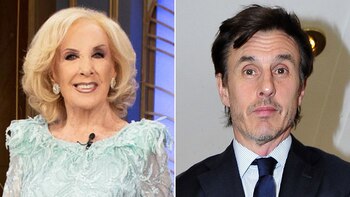
(ATR) The International Athletics Federation submitted six appeals to the Court of Arbitration for Sport challenging selective doping bans handed out by the Russian Anti-Doping Agency (RUSADA). The court will convene in Lausanne, Switzerland Dec. 2-3.
CAS will hear cases against RUSADA, the All-Russia Athletics Federation and the six Russian athletes implicated in the bans: Sergei Bakulin, Valery Borchin, Vladimir Kanaykin, Olga Kaniskina, Sergei Kirdyapkin and Yulia Zaripova.
Kirdyapkin, Zaripova and Kaniskina all won medals at the London 2012 Olympics which are now subject to being taken away by the IOC.
In January 2015, RUSADA dished out bans of two to three years to six track and field athletes that were back-dated to 2012 and 2013, allowing the suspensions to terminate before the Rio 2016 Olympics and enabling the athletes to compete.
In some cases, the results of the athletes were also annulled for selective dates in 2011 and 2012. For Zaripova, her Olympic gold performance in the 3,000 meter steeplechase at London 2012 was annulled while her world championship gold in 2011 was not.
Five race-walkers were also given bans with their annulled results suspected to be chosen by RUSADA and ARAF to preserve Olympic medals won in London by Kirdyapkin and Kaniskina.
Kirdyapkin won gold in the men’s 50 kilometer race-walk setting an Olympic record in the process, while Kaniskina received silver in the women’s 20 kilometer. The three gold medals could be stripped if the CAS rules in favor of the IAAF.
IOC president Thomas Bach is taking a strong stance against those implicated in the doping scandal, promising that the IOC will "withdraw the medals of affected athletes".
"We will exclude athletes and officials from future Olympic Games which are implicated in this issue," said Bach earlier this month..
At the time the bans were issued, Russian sports minister Vitaly Mutko said it was proof "doping control in our country works well."
"We work hard to protect the young generation of honest athletes, to show them that every doping offense will be sooner or later penalized," Mutko said in a statement.
However, shortly after the bans were delivered Russian track athletes Maria Savinova and Ekaterina Poistogova appeared on a German television documentary admitting they took banned substances.
These claims sparked a joint investigation by the IAAF and the World Anti-Doping Agency into RUSADA and the ARAF, the results of which were published in the WADA Independent Commission report on Nov. 9.
The IC report alleged systematic and state-supported doping practices had taken place in Russia, naming several athletes and coaches in ARAF as violating doping procedures. The report lead WADA to declare RUSADA non-compliant with its anti-doping code.
The IAAF then provisionally banned ARAF, barring all Russian track and field athletes from competing at Rio 2016. ARAF athletes could compete in Rio if the federation makes significant anti-doping reforms, a task European Olympic Committee president Pat Hickey is "confident" Russia will complete in time.
"I hope Russia takes this opportunity to cooperate with the relevant international anti-doping authorities so that we can see clean Russian track and field athletes representing a clean Russian athletics federation at the start line in Rio," said Hickey.
Written by KevinNutley
20 Years at #1: Your best source of news about the Olympics is AroundTheRings.com, for subscribersonly.
Últimas Noticias
Sinner-Alcaraz, the duel that came to succeed the three phenomenons
Table tennis: Brazil’s Bruna Costa Alexandre will be Olympic and Paralympic in Paris 2024

Rugby 7s: the best player of 2023 would only play the medal match in Paris

Rhonex Kipruto, owner of the world record for the 10000 meters on the road, was suspended for six years

Katie Ledecky spoke about doping Chinese swimmers: “It’s difficult to go to Paris knowing that we’re going to compete with some of these athletes”




